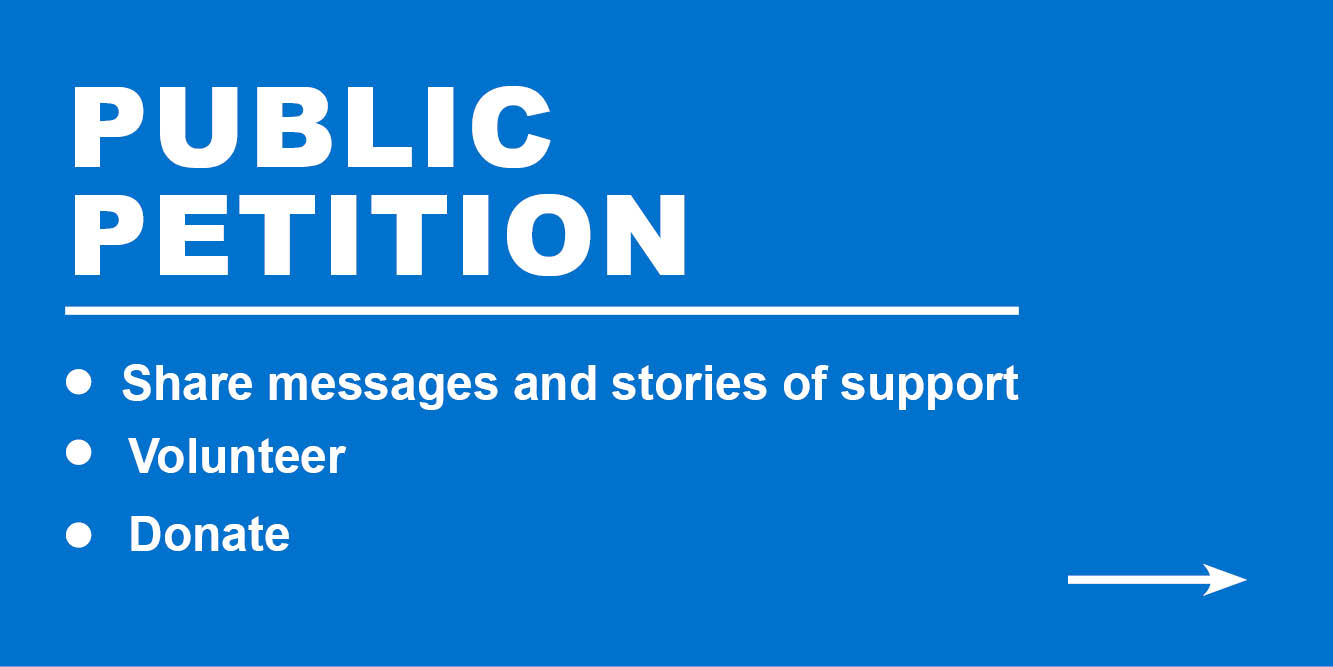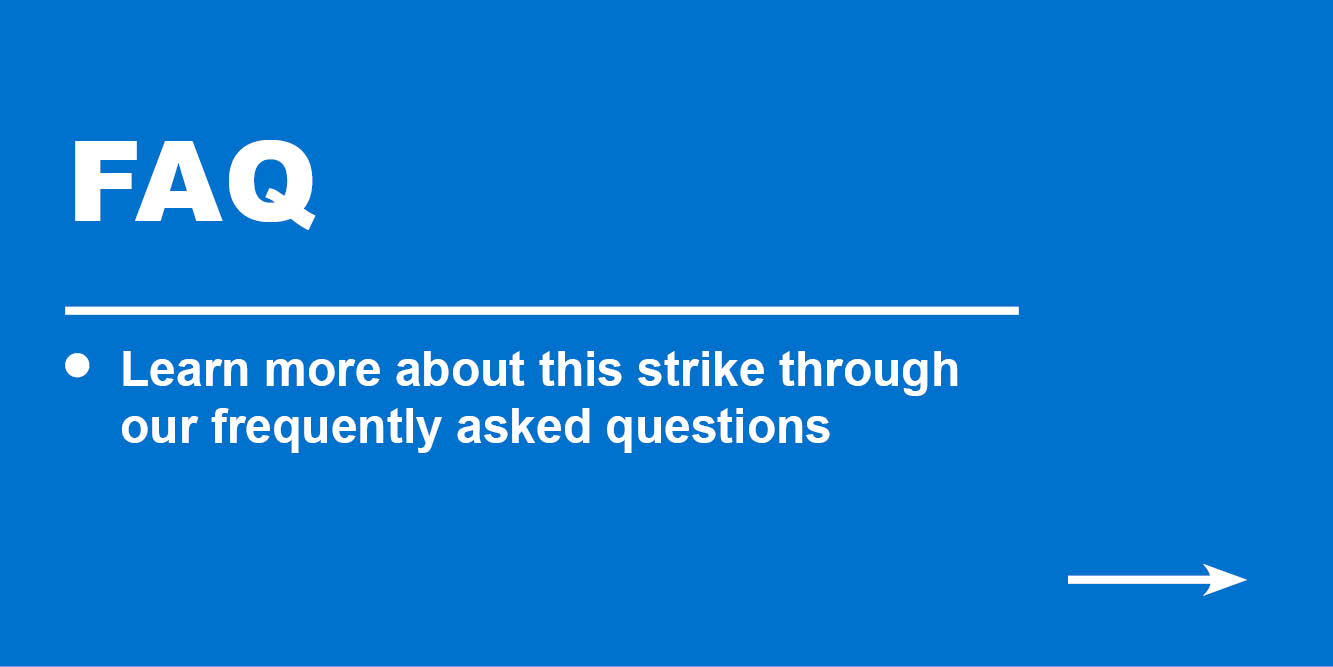
Download the Strike FAQ
WHY DO NURSES AND CLINICIANS STRIKE?
- Strikes are union nurses' most powerful tool when employers refuse to listen to caregivers and patients!
- Strikes are also an essential way that workers can protest and try to stop an employer from committing unfair labor practices.
- The value of our work and ONA health care workers' strength in numbers make a strike a very powerful form of leverage at the bargaining table or to stop the employer from continuing to break the law.
WHAT KINDS OF STRIKES ARE THERE?
- There are Unfair Labor Practice (ULP) Strikes and Economic Strikes.
- Unfair Labor Practice Strikes occur when an employer broke the law and the union filed unfair labor practice charges.
- Economic Strikes are directly related to an unwillingness of the employer to provide fair economic proposals.
HOW DID THE NURSES AT PROVIDENCE (ST. VINCENT, MEDFORD, WILLAMETTE FALLS, NEWBERG, MILWAUKIE AND HOOD RIVER) MAKE THE DECISION TO STRIKE?
- ONA is a democratic union, and an overwhelming majority of represented nurses must commit to going on strike.
- Nurse leaders on these Providence bargaining teams have asked every represented nurse to support their strike authorization vote.
- A decision to go on strike involves participation, input and votes by nurses represented for collective bargaining in that unit, local unit officers, statewide elected ONA bargaining unit leaders and staff.
- Only the ONA nurses in the affected bargaining unit, by democratic vote, have the power to authorize a strike.
ARE NURSES’ JOBS SAFE IF THEY STRIKE?
- It is illegal to terminate workers for striking.
- Thousands of health care workers have gone on strike across the West Coast and consistently return to their positions at the end of the strike.
- Also, for a strike that is protesting unfair labor practices it is unlawful for an employer to permanently replace a nurse.
WHO WILL CARE FOR THE PATIENTS IF NURSES GO ON STRIKE?
- If nurses at Providence go on strike, it will be to make sure patients have better patient care, now and in the future.
- Participating in a strike does not constitute patient abandonment.
- By standing up for improved conditions, workers are advocating to better care for patients.
- As required by law, ONA will give the employer 10 days advance notice before a strike so that the hospital can move patients to other facilities and cease taking elective patients.
- Patients who would normally come to the facility may have to use other facilities.
- If a legitimate emergency (natural disaster, catastrophic event) arises, the emergency will be assessed and the decision to provide RNs or other workers will be made.
IS IT ETHICAL FOR A NURSE WORKER TO GO ON STRIKE?
Nurses, just like workers from every profession, are sometimes left no other option but to go on strike.
After years of being stretched beyond your capacity, while fragile healthcare systems collapsed around you, your employer has not made substantial enough movement at the bargaining table. Management rightfully calls nurses heroes but they won’t commit to workplace improvements so that they will stop feeling demoralized and instead will feel valued and rewarded. Management and others supportive of the employer will attempt to spin this and say, “you are abandoning the
patients and your community!”
This is the same language they use when they impose mandatory overtime or unsafe patient assignments on exhausted, overburdened staff. Even more than this, the pandemic exposed vulnerabilities in our healthcare system that were created by executives fixated
on extreme efficiency at the expense of the workers and patients.
Let’s remember; nurses are some of the most trusted professions in America because of their strong code of ethics and moral compass, and executives will always try to exploit those virtues for their own gain.
Oregon residents know the truth: nurses aren’t avoiding hard work. They are advocating for their patients, their community, and themselves.
Three key things for nurses to remember:
First, know your Rights! You have a right to strike, and the rules are clearly established in federal law.
Second, striking is not patient abandonment: According to the OSBN Interpretive Statement on Patient Abandonment: “The key component in determining
if an action constitutes patient abandonment is the establishment of a relationship between nursing personnel and the patient” and “Refusal to accept an assignment or establish a care relationship with the patient or patients does not constitute
patient abandonment.”
Lastly, nurses have an obligation to improve working conditions. The ANA Code of ethics states, in Provision 6: “The needs of patients may never be used to obligate nurses to remain in persistently morally unacceptable work
environments.” Healthcare executives have been pushing the limits for too long, work environments are unacceptable, and nurses and others are facing a moral injury epidemic that needs immediate intervention and if employers won’t commit to that at
the table, then collective action is needed. As the ANA Code of Ethics states: “The nurse, through individual and collective action, establishes, maintains, and improves the moral environment of the work setting and the conditions of employment, conducive
to quality health care.”
When nurses are forced to come together in solidarity and strike, we all need to carefully examine the institutions claiming to provide a community benefit while taking advantage of dedicated staff. The decision to strike is never an easy
one and it is false to assert that workers demanding better conditions are a threat to any healthcare system.
HOW CAN I SUPPORT NURSES AT PROVIDENCE?
Visit here to sign our community petition and learn about other ways you can support nurses at Providence St. Vincent, Hood River, Milwaukie, Willamette Falls, Newberg, and Medford.
You can also send questions to news@oregonrn.org, with the subject line Providence Nurses and a staff member will get back to you as soon as possible.
PROVIDENCE STRIKE NURSE MATERIALS
















